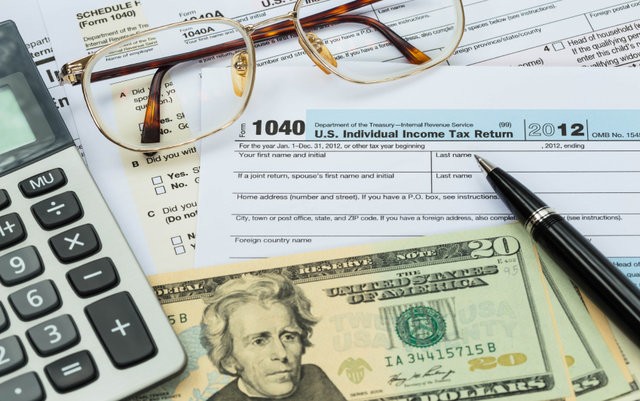The tax man’s coming and everyone is scrambling to get their taxes prepared and filed before that April 15th deadline – but for individuals working in the cannabis industry this can be a little more frustrating of a time of year, especially if you weren’t aware of the IRS’s policies on taxation for “trafficking a controlled substance”.
You might wonder why the IRS even has a policy when it comes to paying taxes for illegal trafficking. After all, how many drug dealers actually file taxes, right? You might be as surprised as I was to find out that back in 1974 a drug dealer by the name of Jeffrey Edmondson was convicted of trafficking.
After being convicted of moving a whopping 100 pounds of marijuana, 12 ounces of cocaine and 1.1 MILLION amphetamine tablets the IRS came knocking looking for Edmondson to pay taxes on his illegally obtained income.
In response, Edmondson filed his return, but he wrote off many different expenses including entertainment, airfare, phone calls, rent on his “place of business” as well as his apartment. While all these were normal deductions taken by legitimate business owners, Congress didn’t approve.
So in 1982 Congress added tax code amendment 280e, which would prevent anyone who made their income from trafficking controlled substances (schedule I and II as stated in the Controlled Substances Act) from taking those sort of deductions again.
No deduction or credit shall be allowed for any amount paid or incurred during the taxable year in carrying on any trade or business if such trade or business (or the activities which comprise such trade or business) consists of trafficking in controlled substances (within the meaning of schedule I and II of the Controlled Substances Act) which is prohibited by Federal law or the law of any State in which such trade or business is conducted.
However these days that tax code is creating a problem for legitimate business owners – not the drug dealers it was meant to hurt in the first place.
The code was amended to mention medical marijuana – though it does not change a single bit of tax code 280e to benefit these companies in any way…
Though a medical marijuana business is illegal under federal law, it remains obligated to pay federal income tax on its taxable income because §61(a) does not differentiate between income derived from legal sources and income derived from illegal sources. See, e.g., James v. United States, 366 U.S. 213, 218 (1961).
This basically means that marijuana businesses, whether they are legal on the state level or not, are unable to deduct normal business expenses. This means no deductions or credits for rent, travel costs, utilities, employees – or anything else for that matter. Everything above the cost of their product is considered taxable income.
In the end, this means that instead of paying around 30% (which is average for a business) in taxes, legitimate marijuana companies are forced to pay taxes that can be up to 70% of their income!
With more and more states legalizing marijuana for both medical and recreational purposes, this old bit of text clearly needs to be revised. It’s just not feasible that these companies be forced to pay such a high tax compared to other legitimate businesses. After all, they are complying with state law – and so far the government has decided if the state says okay to leave them be – so why treat them the same as black market drug dealers from the 70s?






